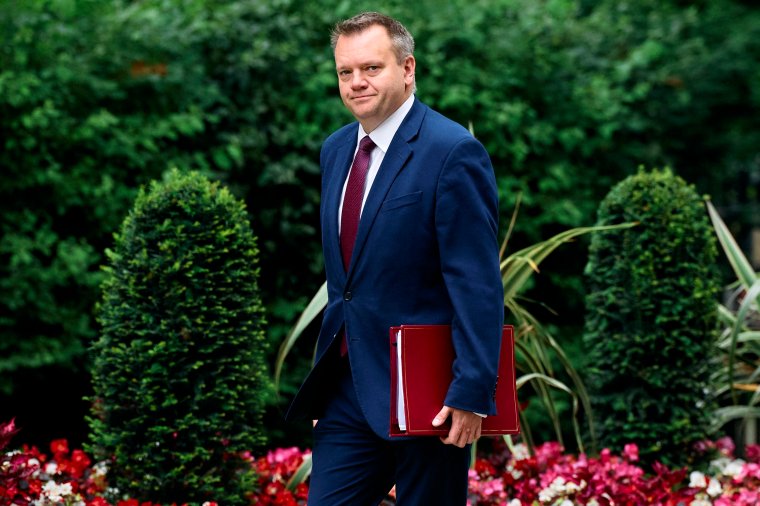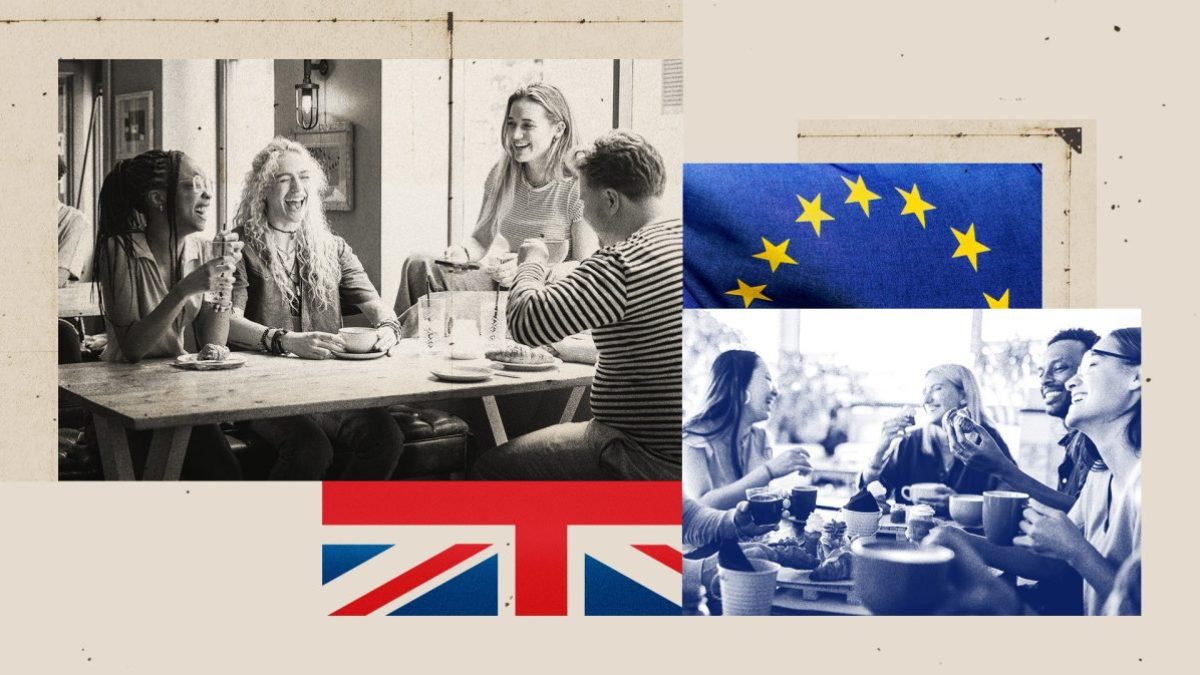A youth mobility scheme for under-30s has been a sticking point in Starmer’s plan for an agreement – but a Brussels source suggests a breakthrough is possible
A cap allowing 50,000 EU citizens a year to come to the UK on a proposed new under-30s visa could be accepted by Brussels as part of deal to achieve a softer Brexit, The i Paper can reveal.
The youth mobility scheme has been a key sticking point in Sir Keir Starmer’s plan to negotiate a better deal with the European Union as part of his drive to grow the British economy.
And the EU’s willingness to accept an annual limit of 50,000, having initially proposed an uncapped scheme, could offer a way through if the UK can agree to that level at a time when when immigration is such a contentious issue.
New FeatureIn ShortQuick Stories. Same trusted journalism.
Last week, EU relations minister Nick Thomas-Symonds hinted that the UK would be looking to negotiate a scheme that was “capped, smart and controlled, and the numbers will be in the context of the schemes we already have”.
The UK currently operates a youth mobility scheme with 13 countries, with the most generous, for Australians, capped at 42,000 places.
EU might try to expand number of UK visas
Now a senior EU source has told The i Paper that if Thomas-Symonds was envisaging a scheme of around this size with Europe, it would be “significant” and could be a landing zone for a deal, while also suggesting Brussels may ask for a commitment to regular reviews to see if the scheme could expand in future.
It is understood that the UK is yet to decide what level of cap it will offer, but that a scheme as generous as Australia’s is unlikely to be the Government’s initial proposal, which is more likely to be lower.
 Nick Thomas-Symonds hinted that the UK would look to negotiate a scheme that was ‘capped, smart and controlled’ (Photo: Benjamin Cremel/AFP)
Nick Thomas-Symonds hinted that the UK would look to negotiate a scheme that was ‘capped, smart and controlled’ (Photo: Benjamin Cremel/AFP)
But the EU source warned that Thomas-Symonds’s goal of concluding the flagship food and drink deal the two sides are negotiating by 2027 would depend on “progress” being made on other aspects of the reset, suggesting the UK may have to make concessions on youth mobility if it wants a speedy deal elsewhere.
The two sides agreed in May to work towards a youth mobility scheme following months of EU demands being rebuffed by Starmer, who is under heavy pressure from Reform to cut immigration.
The idea of the reciprocal visas would be – according to the “Common Understanding” agreed between the UK and EU in May – to “facilitate the participation of young people from the European Union and the United Kingdom in various activities, such as work, studies, au-pairing, volunteering, or simply travelling, for a limited period of time”.
The Prime Minister insisted at the time that this would be a “capped scheme” with the number of visas available to be negotiated at a later date, although the EU did not agree to this.
UK officials are braced for the EU to make youth mobility a priority in the autumn round of negotiations, which are also expected to include talks on British access to Brussels’ rearmament loans scheme and the linking of emissions trading schemes, with ministers poised to ask for a temporary exemption from European carbon taxes.
Brussels wants lower UK visa fees
The source, however, predicted that the level of the cap would not be the biggest issue at stake for the EU. Instead, the bloc is most determined to get the UK to lower demands to charge European young people thousands of pounds in fees for their visas.
The Cabinet Office said the 42,000 figure was speculation.
In 2023, only 23,000 people came to the UK on its existing youth mobility schemes, well below the caps across all of them. and a fraction of net migration, The Guardian reported last year.
On the prospective cap on a youth experience scheme, a Cabinet Office spokesman said: “This figure is complete speculation. We have not yet started formal negotiations on a youth experience scheme.
“Our May deal with the EU agreed to work towards a scheme which will give young Brits the opportunity to travel, work and study abroad.
“We agreed that any scheme will be time-limited, on terms to be mutually agreed, and the overall number of participants must be acceptable to both sides. We will only agree to a system that works in our national interest.”
Question over foie gras ban
While youth mobility is perhaps the most contentious point of the planned negotiations, the UK is being warned it faces difficulties in other areas.
Thomas-Symonds used his speech last week to insist the UK would get “carve-outs” from aligning with EU law, which would be key to achieving a trade deal that scraps food and drink border checks.
But he refused to answer a question from The i Paper on whether he would seek carve-outs. He also refused to repeat a pledge to ban foie gras. Neither would be possible if the UK were totally aligned with EU rules.
Former UK trade official David Henig said the minister’s reluctance to get into specifics might be because the EU could refuse to give any carve-outs in the deal.
On gene editing, he suggested Brussels’ likely stance could be to agree a review mechanism to look at the issue in years to come, as some EU countries are moving in the UK’s direction.
“You may well find those sorts of tricks that I would expect to play,” Henig, UK director of the European Centre for International Political Economy, said of a potential “fudge”.
He added: “But [Thomas-Symonds] was very careful not to raise any expectations.”
UK may have to pay EU for access to defence deals
Elsewhere, in a paper shared with The i Paper and due to be released next week, think tank UK In A Changing Europe (UKICE) warns that Britain may face a fresh obstacle in its battle to secure access to the EU rearmament fund, due to the EU’s “restrictive” intellectual property rules.
The UK is seeking to secure access for British defence firms to weapons-making projects started under the EU’s €150bn (£126bn) rearmament fund, known as SAFE, after signing a security and defence partnership with Brussels.
But EU sources have already indicated that access will come with conditions attached, including demands for payments from the UK to Brussels, as British defence firms will benefit from the bloc’s loans.
There could also be restrictions on how much of any arms product is British-made, as some member states, led by France, want the EU to have autonomy over its defence.
Defence Secretary John Healey has already emphasised the importance of “retaining UK intellectual property” in any deal.
In the UKICE paper, however, Jannike Wachowiak will warn “this will be far from easy”.
She will add: “The EU’s restrictive IP rules have in the past hampered cooperation with third countries in defence projects under the Permanent Structured Co-operation (Pesco).”
With the EU setting a 30 November deadline for requests for loans under the Safe scheme, “time is tight” for negotiations “if the UK doesn’t want to miss out on joining procurements”.
